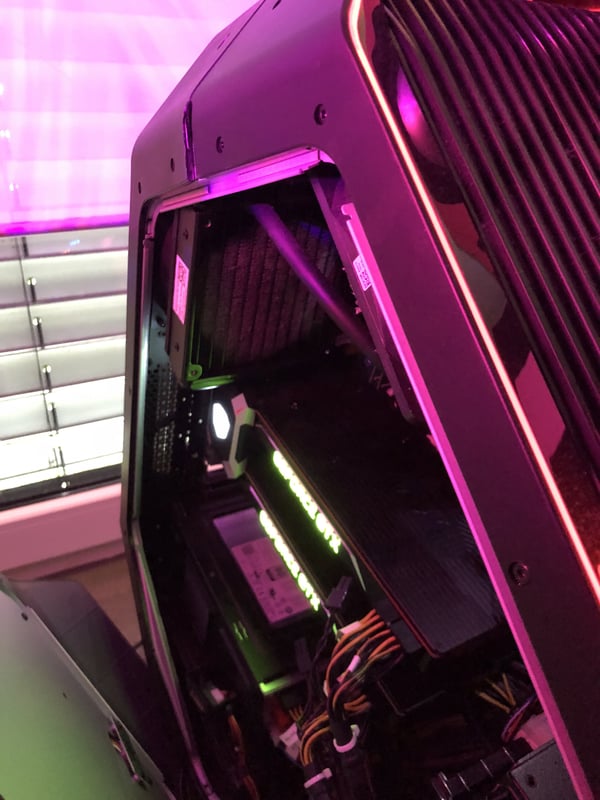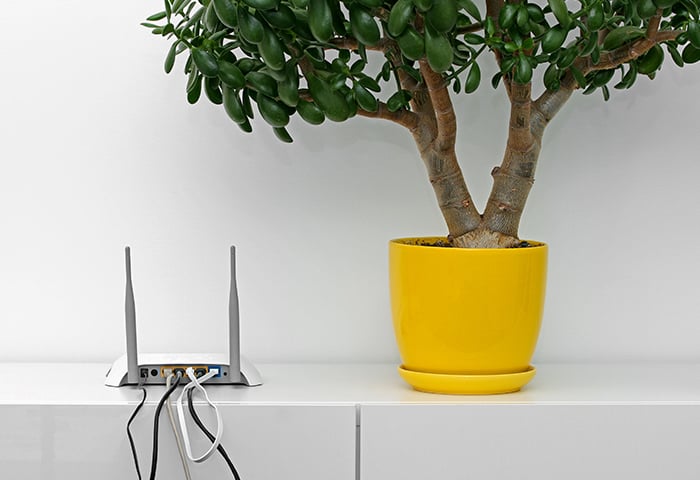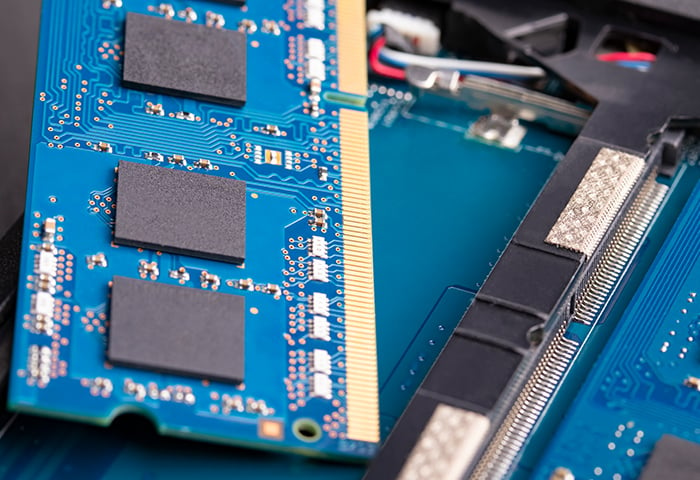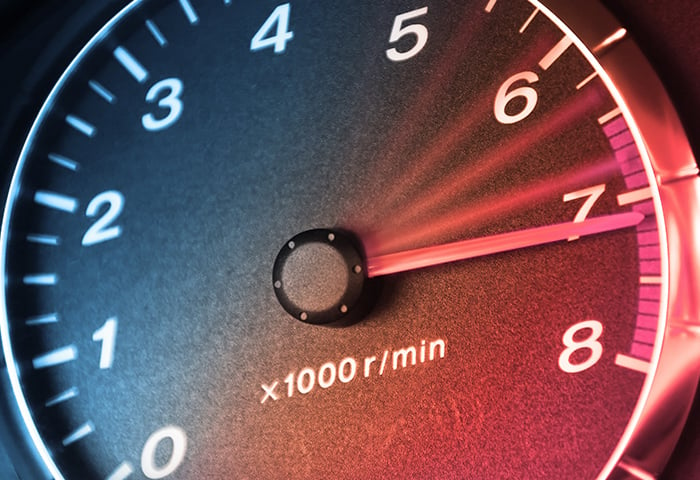People tend to keep their PCs around for the longest time and don’t really replace them often, as shown by this study.
But if you’re finally on the market for a new one, you’ll quickly hit the wall of indecision when faced with the endless different options available to you: Do I go with a laptop or a traditional desktop? What kind of processor do I want and what’s the difference between a Core i9 7980XE and a Core i3? Do I need 4, 8 or 16 GB of memory? Do I really need an SSD?
And that’s before you even get hit with price, which can range anywhere from a few hundred bucks to something you’d need to sell a kidney to afford.
It doesn’t have to be this complicated. We’ll show you what PC is best suited for your personal needs. And don’t worry, we won’t be explaining every single processor generation or every single graphics card out there. But we will:
-
Give you clear recommendations based on what you do with your PC so you’ll get the best experience (at every budget).
-
Help you understand what all the weird words and acronyms that power your PC really mean
There’s just one thing you really need to know to get started.
What do you do with your PC?
This is the single most important question you need to answer in order to figure out exactly what kind of PC you should be purchasing.
And be honest with yourself here. Future-proofing your PC for an activity you haven’t picked up yet is like purchasing a gym membership thinking that will force you to get fit. It won’t, and you’ll just be throwing money out the window.
We’ve broken down the different kinds of activity below, but you may find yourself somewhere mid way through.
Light browsing, Office & video streaming
Budget: $300-500
If all you do is browse the web a bit, stream content online like Netflix, and do some basic text editing — and if budget is an issue — then go with a computer that has:
Remember, this is the bare minimum. You will still get the occasional lag and built quality isn’t exactly top notch in that range. It gets the job done, though!
Got a bit more budget? Then step up and treat yourself...
Photo editing, Office, more intense web browsing
Budget: $500-999
If you’re comfortable in the $500-999 range and need to work a lot with Office, browse the web (with dozens of open tabs), and work with photos, you’ll get a nice computer:
-
Any laptop or desktop with a Core i3.
-
At least 4GB of RAM will do the trick, but you should be able to get 8 GB in this price range.
-
Make sure you get a 256 GB (or more) SSD or a larger traditional HDD with more than 500 GB of storage.
The closer you get to the magic $1000 mark, the likelier it is you’ll get a decent graphics card and a nicer screen.
Programming, video editing, rendering, multitasking
Budget: $1000-2000
This is for your business folks who need fast performance on a day-to-day basis:
-
Make sure you get an Intel Xeon with at least 8 cores or a Core i9 7800x (at least).
-
16-32 GB RAM and an NVIDIA Quadro graphics card. Also look at DDR4 RAM with at least 2666 MHz to maximize performance.
-
On the hard disk side, go with an NVME SSD which is the fastest SSD type available today and gives you even better performance. Excellent models include the latest Samsung 970 EVO/Pro or even Intel Optane 800/900p for absolute blazing fast performance.
You may want to pair this with some heavy-duty external storage solutions, so you can afford a bigger SSD card.
Gaming
Budget: $1000- THE SKY’S THE LIMIT
Do you game until your fingers bleed? Then you’re my people. This is my favorite part of this article, but also not the easiest to answer. When people ask me about gaming PCs or gaming laptops, I usually ask the following 2 questions:
What games do you play?
If your answer is “browser games” or “Minecraft”, then any home or office PC will do (see the PCs capable of more intense web browsing).
However, if you’re playing recent blockbuster titles like Far Cry 5, you need a decent gaming PC. Grab a Core i5 or Core i7 at the very least and make sure you get the “K” versions, which are overclockable.
What resolution do you play at?
-
1008p resolution: If you’re rocking a 1080p display, you should be fine with Intels entry-level GTX 1050 or GTX 1060 graphic card models. They should give you decent frame rates (30-60fps) at medium details levels. Activating all bells and whistles at Full HD requires a GeForce 1070.
-
1440p resolution: Moving up to 1440p, a very common and popular gaming resolution, you need that 1070 at the very least or (if you’re in camp AMD) a AMD RX 580 or Vega 56/64.
-
4K resolution: Moving on to 4K...well, get ready to dump some serious $$$ on graphics cards. The $800+ GeForce 1080 Ti is the bare minimum for 4K and even then you’ll have issues running 4K at High Details at a smooth 60fps. That’s why, as of mid 2018, you definitely need a SECOND 1080 Ti or even a Titan Xp to play at 4K.
 See these two beasts? That’s what’s required to run games at 4k 60fps with all detail levels enabled. We don’t live in a land where 4K gaming is really financially feasible, yet.
See these two beasts? That’s what’s required to run games at 4k 60fps with all detail levels enabled. We don’t live in a land where 4K gaming is really financially feasible, yet.
Making sense of the components
Let's walk through what all of the PC buzzwords mean, and explain what are processors, memory, storage and so forth…and cover what kind you need.
What processor (CPU) do you need?
The Central Processing Unit (CPU or Processor) is the “brain” of your computer. The two main makers are Intel and AMD with Intel leading the pack by far. All of them have different classes and performance levels, just like your typical car maker, ranging from the lower-end one that gets you from A to B and the luxury-class super-car for the top 1%.
AMD
On AMDs website you can find the latest generations for each category, such as “AMD Athlon™ 5000 APU” or the A-Seres for mainstream usage (office, video playback, basic online gaming). Then there’s the FX series, the “middle class” which gives you decent performance for photo editing or more demanding games. On the top end, there is the “Ryzen”, which is AMDs newest and fastest generation.

Even the Ryzen generation of AMD CPUs can get quite complicated.
To make things complicated, even Ryzen is divided into different “classes” starting with the low-end Ryzen 3, the mid-range Ryzen 5 and the high-end Ryzen 7 and Threadripper. Unless you’re on a super tight budget, you can find affordable laptops and desktops with Ryzen 3 to get the best possible performance and the latest generation of processors.
Intel
Over on camp Intel, things aren’t much simpler: On the low-end side you have Intel Atom processors for tablets or super cheap laptops and then the slightly faster Intel Celeron. The middle class is being occupied by the Intel Pentium (this used to be Intels name for their top end processors), which is adequate for most general purposes like browsing, working, and even some more demanding games.

Pay attention to the starting number in the model (8700K) or the year it was made, and always get the latest.
On the “high-end” spectrum, we’ve got the Core i-series (i3, i5, i7, i9) and the advice we gave above applies here: The lower-end “i3” is still part of a family of fast processors while being affordable. It offers great performance for everyday use. Starting with the i5, i7 and especially the i9 series, we’re looking at hardcore gaming and extreme workstation scenarios — but more on that below. Always make sure to get the latest generation because a Core i7 8700k (8th gen) from 2017 offers almost double the performance than its Core i7 2700k (2nd gen) from 2011.

When purchasing a PC or laptop, it usually states the generation (such as “8th gen”) or in some cases it just gives you the CPU model.
In this example, the 8th gen Core i7 is fairly new (2017/2018 generation) whereas the Core i7 2600 is from the 2nd generation (hence the 2 in the name) and should be avoided. However, in some cases you might even get a good deal on a previous generation high-end model which might be better than a current-gen low-end. To compare the performance between CPUs, check out the CPUboss website.
After bringing your new computer home, stress-test your CPU to ensure that your system is stable enough to handle intensive computing tasks.
How much RAM do you need?
In the early days of computing, more Random Access Memory (RAM) meant more performance. Today this holds true still, although memory has lost its significance a bit. Today, the bare minimum should be 4 GB as it’ll be filled up by your Windows version and just a handful of apps.
 Just a few browser tabs from Chrome and Edge were enough to eat up over 2 GB of RAM
Just a few browser tabs from Chrome and Edge were enough to eat up over 2 GB of RAM
In the example above, I fired up 15 tabs in Microsoft Edge and just 8 in Google Chrome and they’re taking up between 1.3 and 1.8 GB of RAM. Combined with all other programs and Windows itself that would fill up 4 GBs of memory instantly, which would cause immense slowdowns, crashes, or 100% disk usage issues. That’s why we’d recommend at least 4 GB but — if you have the budget — go with the 8.
If you’re a hardcore gamer or need to do some serious work like video editing, then go with 16 or 32 GBs of RAM.
What kind of a Hard Disk do you need? SSD or HDD?
Get an SSD (Solid State Drive). There’s no reason not to, unless your budget is extremely limited. There are other ways to boost your computer's speed, of course, but an SSD is a good foundation to start with. An SSD is faster, and just gives you a far superior experience than old-school HDDs (Hard Disk Drive).
You’ll often find PC models that sport both. This lets you use the faster, more expensive SSD to store your core Windows OS and programs (where speed matters) and a larger, cheaper HDD to store all your data files (where speed matters less).
 Even in mid-range PCs around the $500-800 range, you’ll see SSDs of less than 200 GB with a traditional hard disk ranging from 1 to 2 TBs.
Even in mid-range PCs around the $500-800 range, you’ll see SSDs of less than 200 GB with a traditional hard disk ranging from 1 to 2 TBs.
What kind of graphics card do you need?
Not a gamer, video/photo editing or 3D rendering pro? Then ignore this section as pretty much any graphics card built into today's PCs handle basic web browsing, basic browser games, high-resolution video and office applications.
If you need a bit more oomph for your graphics, then there are a few things you should know:
-
Avoid any “integrated” graphics such as Intel Iris or AMDs integrated Radeon graphics. These are relatively slow graphics chips that are enough for your daily workload but not enough for real gaming or other more elaborate multimedia tasks.
-
Always go with a “dedicated” graphics card, such as NVIDIAs GeForce 10 series or AMDs Vega 56/64 or their mid-range Radeon RX 500 or 400 series. We’ll show you what to pick below…
How big a PC screen do you need?
You’ll be looking at the screen all of the time so make sure it’s got at least a decent resolution of 1080p (1920 by 1080 pixels), but if you’re on a budget even 1280x720 should be fine for a 12”/13” laptop or a 15-19” screen.
If you’re looking at more screen real estate, go for a 15” laptop screen of at least 2560x1440 resolution or a 22”-27” desktop screen at the same res. 4K? That’s a tough one! If you’re gaming, then you need an extremely (!!) fast computer to be able to make use of it. If you’re working, also make sure you’ve got a dedicated graphics card to drive so many pixels.
Should you buy a laptop or a desktop?
All of the above options are available for both desktop and laptop computers, although the desktop parts are faster than what you’d see on mobile.
No need to carry your PC around? Always go with a desktop — equivalent components are faster and cheaper. For example: A Core i7 gaming laptop with a GeForce 1080 costs you upwards of $2000. An equivalent PC will run you 30-40% less and it’s likely to run faster as mobile components are cramped in a much tighter space and thus get hotter and thus run slower overall.

 See these two beasts? That’s what’s required to run games at 4k 60fps with all detail levels enabled. We don’t live in a land where 4K gaming is really financially feasible, yet.
See these two beasts? That’s what’s required to run games at 4k 60fps with all detail levels enabled. We don’t live in a land where 4K gaming is really financially feasible, yet. 


 Just a few browser tabs from Chrome and Edge were enough to eat up over 2 GB of RAM
Just a few browser tabs from Chrome and Edge were enough to eat up over 2 GB of RAM Even in mid-range PCs around the $500-800 range, you’ll see SSDs of less than 200 GB with a traditional hard disk ranging from 1 to 2 TBs.
Even in mid-range PCs around the $500-800 range, you’ll see SSDs of less than 200 GB with a traditional hard disk ranging from 1 to 2 TBs.













